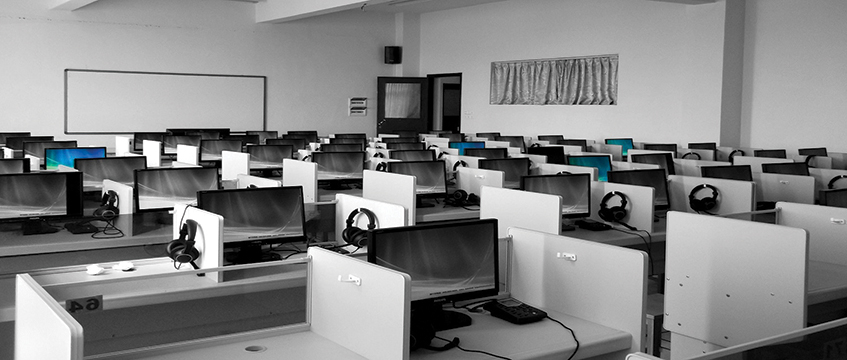“I think we are looking at a £1tn problem that’s about to hit the UK in terms of the British property scene.”
That warning comes from Tim Oldman, chief executive of Leesman, the company behind an eponymous quarterly index that benchmarks employee experiences working in their office or at home.
His fear? That most owners of offices no longer have any idea of what their buildings need to offer to attract workers back to their desks.
“The reason that the average employee is better supported in the average home than the average office is because the average office sucks,” Oldman said. “If the average home designed for living can support the average employee better, what does it say about office design?”
Oldman was speaking on a panel to launch a new edition of Where Is My Office? Reimagining the Workplace for the 21st Century by Chris Kane (published by Bloomsbury).
Ahead of the pack
Kane, a former real estate boss for the BBC, worked on the original book about shifting working practices and their impact on real estate for years before the Covid-19 pandemic, but published it in late 2020.
At the time Kane told EG that real estate companies that could move quickly and decisively could find themselves ahead of the pack.
“Many people would view it as a challenge for the industry. I would see it as a huge opportunity,” he said of tenants rethinking their office portfolios.
“How can a smart property company be the platform to provide its corporate customers x-thousand square feet of corporate headquarters in a city centre, to y-thousand in the suburbs, to a whole lot of smaller, localised work hubs? All of that is going to mean a fundamental redefinition of spaces and places.”
Now, launching the “post-pandemic” edition of the book at Hammersmith’s Irish Cultural Centre, Kane and co-author Eugenia Anastassiou painted a picture of market changes that have yet to play out in their entirety.
Global trends are still emerging, said Anastassiou – English-speaking countries have tended to adopt working from home more readily on average than Asian cultures, she added, although certain Mediterranean cultures have “a more social aspect” to work – but the UK seems behind the curve.
Evaporated overnight
Kane said: “The British property world is one of the most introspective and self-serving in the world – it does not know who its customer is because it never had to worry about customers before. People always had to go to places, like the City of London or the West End or Southampton or wherever.
“But Covid accelerated a raft of things which were happening since the arrival of the iPhone – the introduction of cloud computing, the ability for people who were doing office work to do that work any place, anywhere, any time. And it is now not about the building, it is about the experience.
“We are left with an industry dependent upon people having to come to a fixed place that has just evaporated almost overnight. There are an awful lot of people playing the ostrich card and saying it will all be fine and dandy. But witness what is happening in Canary Wharf [with tenants such as HSBC and Clifford Chance leaving].”
Oldman said: “If half of the office occupiers of London re-evaluate their love affair with property and release back to the market between 30% and 40% of the space they are occupying over the next three to four years, that’s the equivalent of all of the office space of Birmingham, Manchester and Glasgow, our next three biggest cities in the UK, added together.”
“If you look at the cash value of that level of vacancy in the London property market, I think we are looking at a pretty grim future if we cannot re-establish that love affair with office.”
Guests on Kane’s panel – chaired by former BBC News and Sky News anchor Simon McCoy – agreed that a rise in remote working has brought sizeable benefits to much of the country’s workforce.
Earn the commute
Luis Canto E Castro, a diversity and inclusion consultant who describes himself as “the unstoppable crazy cripple”, said workers with physical disabilities have found themselves freed from the constraints of having to commute daily to the office.
“For me it makes an even playing field because I don’t have to commute, which is very challenging because if a lift is out of order I have to retrofit my trip, take a cab, I’m late for work. Foes my boss understand?” he said.
“All of that is removed because I can work from home. The fact that there is no more limitation for people like me is the very reason I have three jobs. I have the space that is adapted to my needs in my home. I don’t have a boss telling me ‘You will work like this’ or ‘You will work like that’.”
But panellists emphasised that for real estate owners, there remain huge challenges.
Throwing down the gauntlet to designers, and architects in particular, Oldman said: “We need the real estate industry, the designers, the architects, to reinvest in understanding what it is that an employee wants – but also what I need as a leader.
“I believe my people are better when they enjoy each other’s company. So help me create environments where they feel that the investment in their commutes is worth the journey and the time they are investing.”
To send feedback, e-mail tim.burke@eg.co.uk or tweet @_tim_burke or @EGPropertyNews











